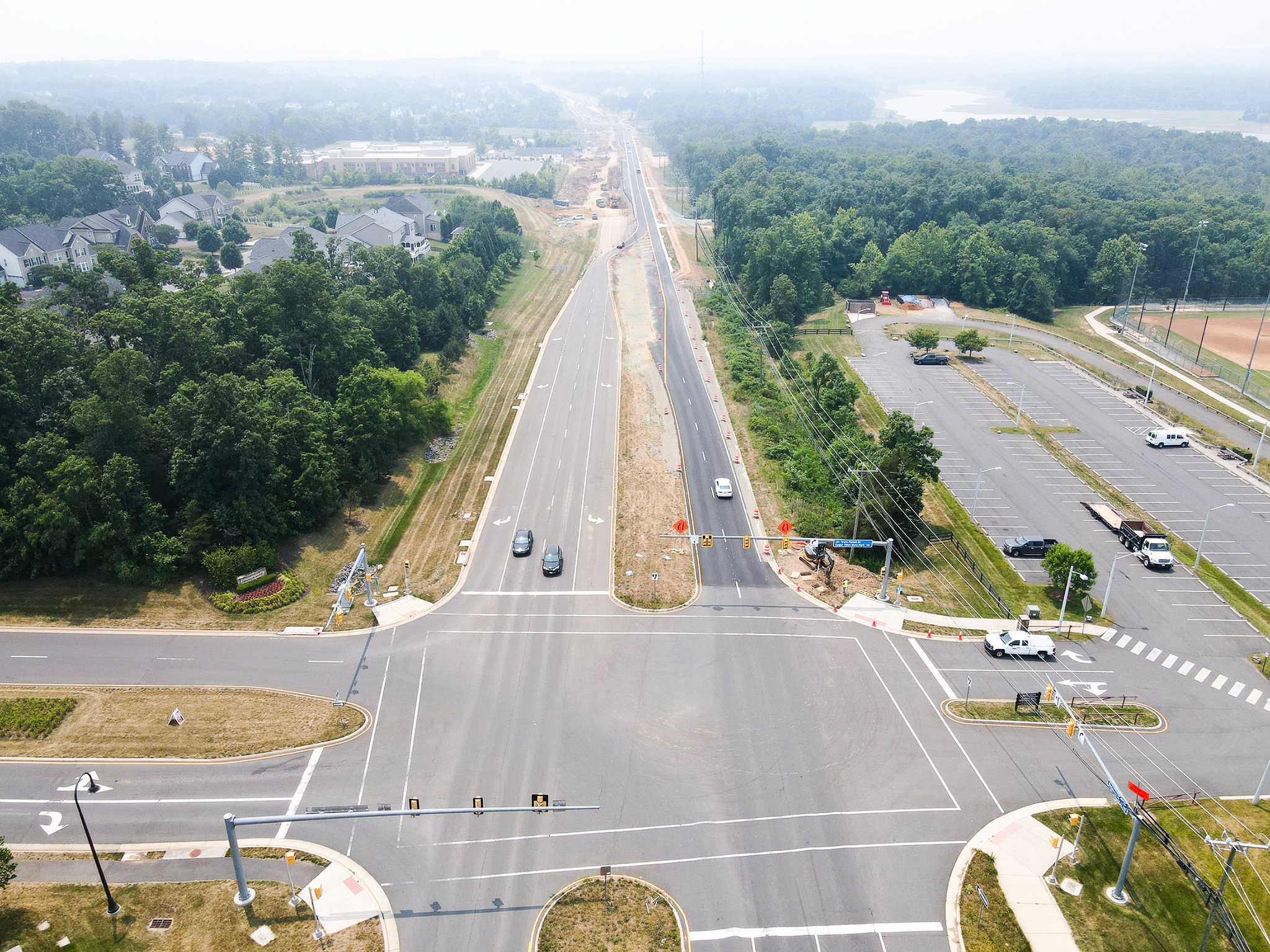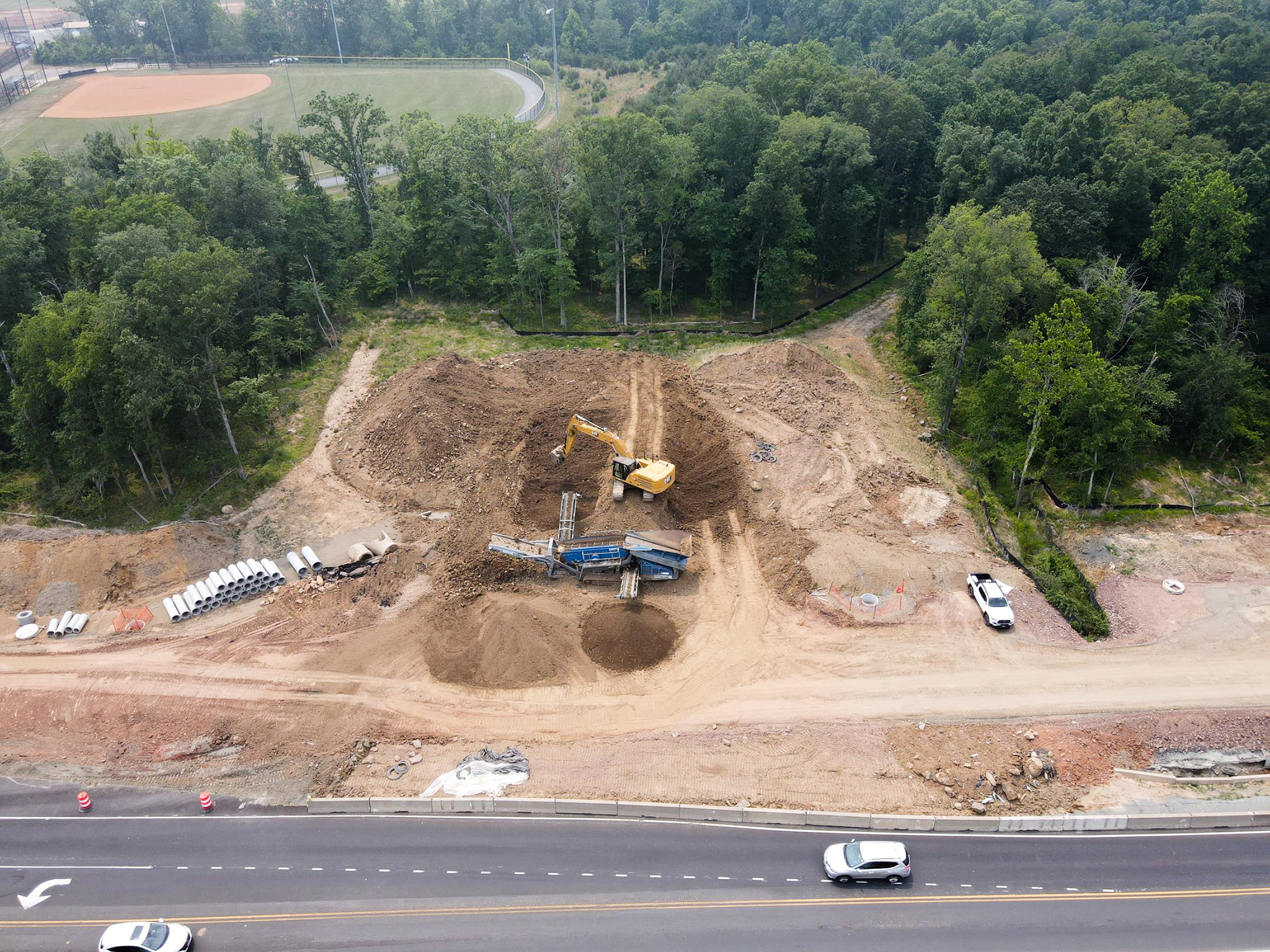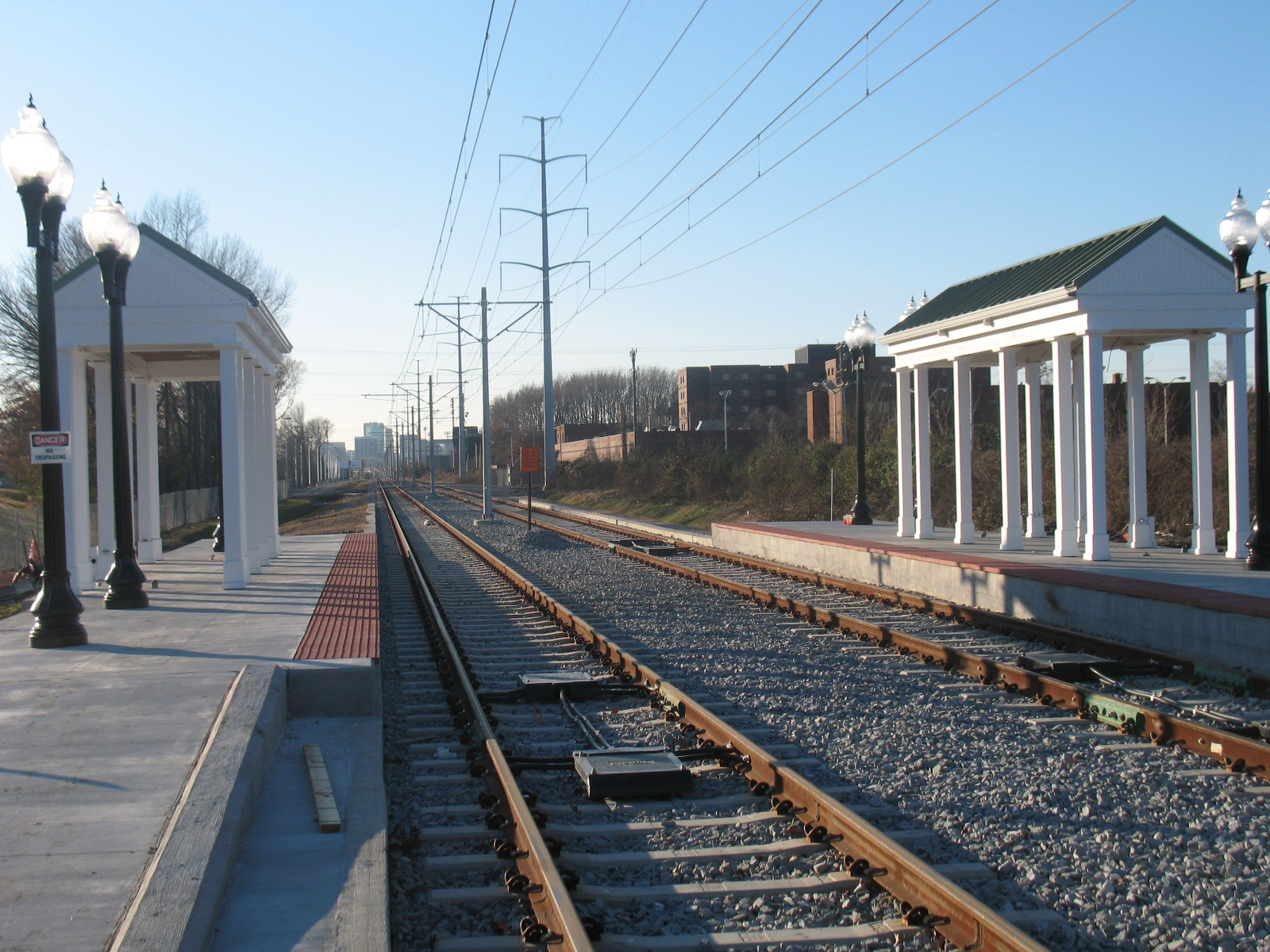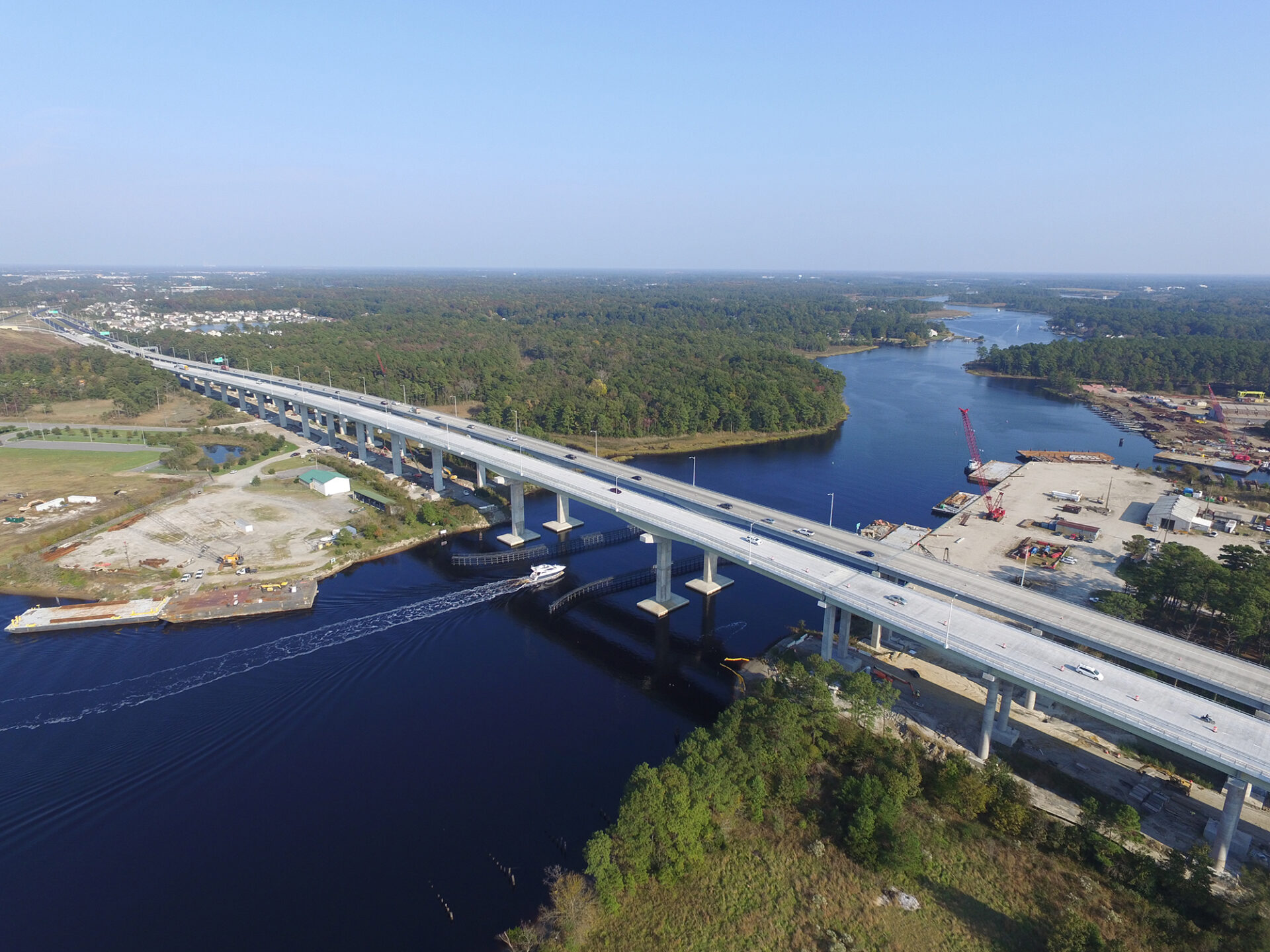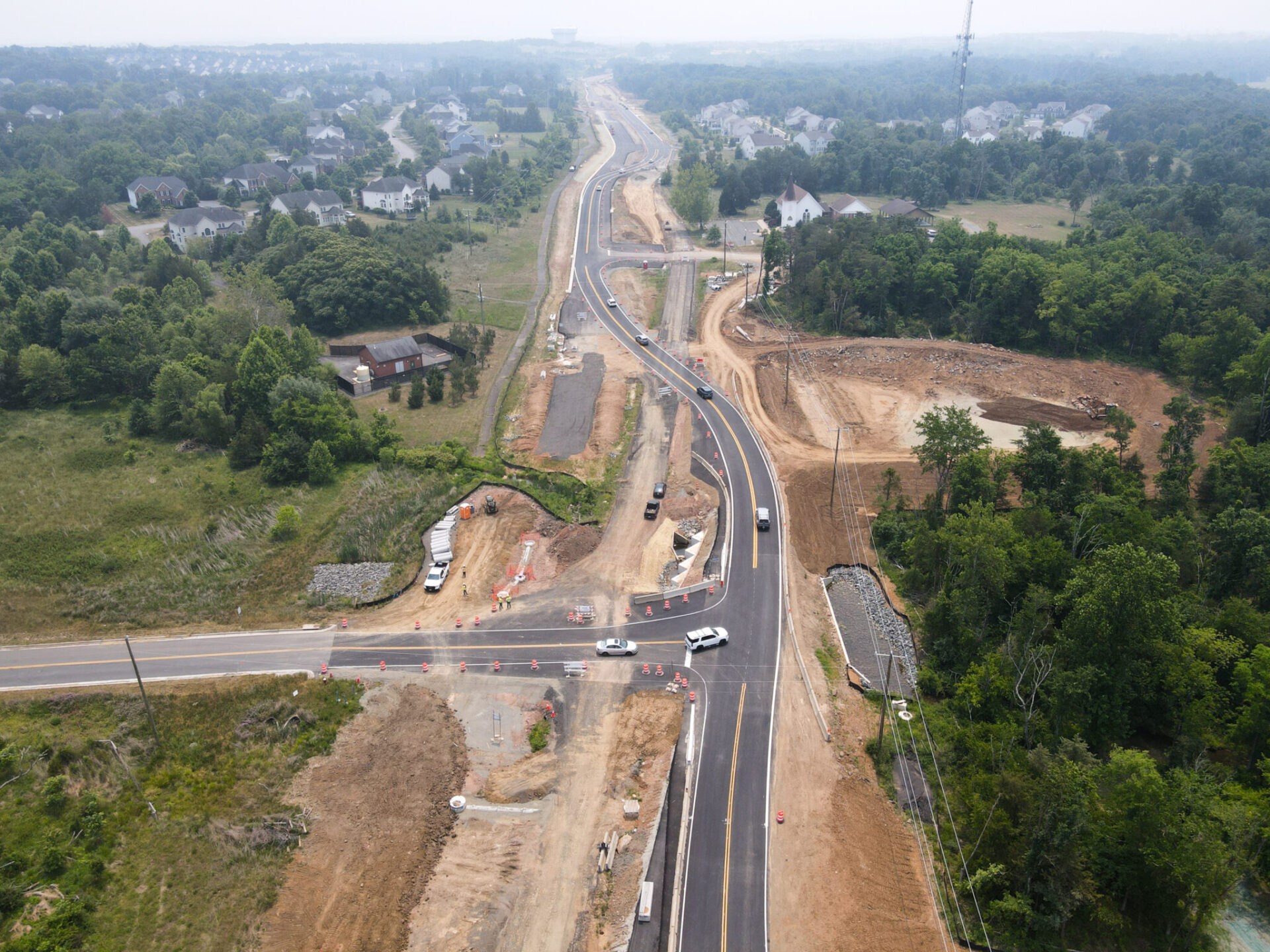
Belmont Ridge Road-Truro Parish Drive to Croson Lane
Ashburn, VA
Several years ago, MBP embarked on a journey with Loudoun County, collaborating on their largest transportation endeavor, the Route 7 and Route 659 (Belmont Ridge Road) Interchange project. The success of this initial project fueled MBP’s commitment to serving the County further when the County, with a portion of the funding being provided by the Virginia Department of Transportation (VDOT), was looking to widen 1.5 miles of Belmont Ridge Road between Truro Parish Drive and Croson Lane from an existing two-lane rural road to a four-lane, median-divided suburban roadway with shared-use paths on each side.
MBP assumed a comprehensive role for this project and was responsible for providing construction management, project administration, full-time inspection, and on-site/laboratory materials testing of this VDOT revenue sharing project and administering it to meet VDOT Locally Administered Project (LAP) requirements.
Challenge
It was expected that challenges would surface throughout the project, such as geological complexities, traffic flow, highly involved adjacent communities, sub-surface conditions, relocation of a large diameter transmission water main, grade control and drainage systems, as well as stormwater management and erosion control, all of which would require careful planning, collaboration, and effective problem-solving to ensure the project’s success.
In addition, the project is situated in Loudoun County, renowned as the Data Center Capital of the World, with over 85% of global internet traffic passing through this region. The team knew there would be additional hurdles to overcome in navigating ongoing construction activities adjacent to power facilities and fiber optic data highways. It was essential to coordinate roadway construction with active fiber optic lines to ensure no disruption of data connectivity within this region. These endeavors were essential to connect the road network to the 63 data centers located in Ashburn, Virginia.
Solution
From the project’s inception, MBP adopted a collaborative approach with the contractor and the County. The combined team of experts recognized the value of open communication and shared responsibility in overcoming challenges. Through setting clear expectations and diligent management, all parties united in pursuit of the project’s success.
Our team encountered an array of unforeseen conditions beneath the surface, while executing significant tasks such as excavating and placing embankment of nearly 200,000 cubic yards of material, installing over 35,000 linear feet of drainage pipe, constructing over 100 drainage structures, placing nearly 40,000 tons of sub-base stone, and paving over 40,000 tons of asphalt. Additionally, the project relocated over 900 LF of a 36-inch transmission water main and established 11 new stormwater management ponds.
The project is situated within a flat, low-lying terrain, and precise grade control became paramount in achieving optimal roadway grading and maintaining the desired drainage system elevations. To effectively manage stormwater runoff and address erosion and sediment concerns, the project design incorporated 11 stormwater management ponds. Among these, nine were bioretention ponds, one serves as a detention pond, and one as a wet pond. Given the proximity of the project to the Beaverdam Reservoir, which stores Loudoun County’s drinking water reserves, stormwater management, and erosion control practices assumed a critical role in providing solutions for the project.
MBP took the lead in resolving project conflicts related to power facilities and fiber optic cabling infrastructure within the project limits. Working closely with the contractor, utility companies, and the project engineer of record, our team identified and implemented solutions that swiftly mitigated these issues. By quickly facilitating impediment removal, we averted any potential schedule and cost impacts to both the project and Loudoun County.
Result
The execution of the Belmont Ridge Road Widening project followed a well-structured approach, featuring multiple phases and stages sequenced to minimize traffic disruptions during the construction of improvements and new lanes. The approved construction plans initially included six major traffic switches as part of the project’s sequencing. However, through ongoing collaboration and comprehensive reviews with the contractor, additional intermediate traffic switches were strategically introduced, resulting in a total of six additional distinct traffic configurations. This dynamic sequencing approach enhanced project efficiency by enabling concurrent activities and optimizing the project schedule, ultimately fostering opportunities for early project completion.
In recognition of the project’s complexity and its impact on various stakeholders, the project team proactively engaged in communication and coordination efforts. The involvement of neighboring Homeowners’ Association (HOA) groups, neighboring church, Waxpool Elementary School, and the Loudoun County Public Schools (LCPS) area lead bus coordinator was crucial in planning and executing the traffic switches. Through close collaboration with the LCPS lead bus coordinator, adjustments to bus routes and stops were seamlessly coordinated to enhance student safety. Work zones and temporary traffic configurations were thoughtfully adjusted to accommodate bus turning movements. Notably, a residential community entrance road was strategically closed for a week, intentionally aligning with LCPS Spring Break to leverage low traffic volume and the absence of school bus activities to be able to expedite construction activities at this intersection.
As a result of our efforts, the conflicts surrounding the power facilities and fiber optic cabling infrastructure were also successfully resolved. This entailed reconfiguring or fixing the existing infrastructure within the project limits, and the contractor was able to deliver the project on time and within budget.
MBP takes pride in being entrusted to contribute our services for the completion of the Belmont Ridge Road Widening project, the final segment of transportation improvements within this vital corridor. The project is scheduled for full completion in 2024, and we remain dedicated to serving the citizens and traveling public of Loudoun County and delivering better project outcomes through these improvements to the County’s transportation infrastructure.

Explore Our Blog
Stay informed with the latest insights, lessons learned, and thought leadership from MBP’s experts.
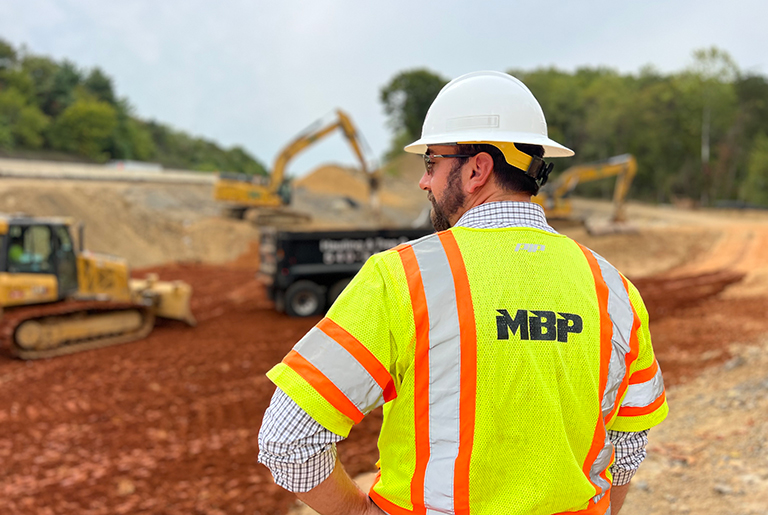
Be a Part of Something Great
At MBP, you’ll be part of a supportive, collaborative environment where your skills are valued, your growth is prioritized, and your work makes a real impact.
